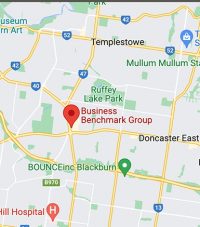So many business coaches, marketers and sales teams discuss the importance of understanding your target market. Everywhere we turn, there’s a webinar, LinkedIn post, or podcast about why you need to understand your audience like the back of your hand so that it no doubt induces many eye rolls from business owners who are tired of hearing about it. There are two actions I suggest when you hear someone talk about target market exercises, and which one you do depends on your business state:
- If you’re mainly attracting high-quality customers, able to say no to the business, you don’t want and are increasing your profits.
Then you can scroll on by! Because chances are, you’ve got your target market locked down. But if you’re:
- Attracting customers who don’t appreciate your value, shop around for the cheapest quotes, and don’t pay on time.
Then you need to stop and listen to what’s being said. Because at the end of the day, you’re missing out. It would help if you knew who would buy your product and why. You need to identify them with great clarity. When securing clients, there’s no room for vagueness, guessing, crossing fingers, or hopeful estimations.
If you are opening a bookshop, it’s no good to say, ‘I expect plenty of book lovers and students to buy my books. I know plenty of them are out there, so I’ll be fine.’
Instead, you need to shape your business from the foundation up and focus on how you can serve your target market. You can’t try to be everything to everyone because you will end up being no good to anybody. So, if you fall into category B, set aside some time to ask yourself these six questions:
1. Who is the person or organisation you want to serve?
Be sure to define them in detail. For example, ‘parents’ is not a well-defined target market. What age are they? How many kids do they have? Where do they live? How much money do they earn? Are they married/single/divorced etc.? Defining ‘parents’ as a target market is just the beginning. Don’t forget to determine psychographics and demographics. Not every single parent with three children living in a busy city is the same.
2. Where do they congregate in their greatest concentration?
You want to consider where they’re being influenced and where they go to ask questions and have conversations. Knowing this means you can go to those places to understand more about your ideal client’s problems, thought processes, and objections. You can also use these places for exposure by showing up there.

3. What is their #1 problem?
What is their problem, and how can you solve it for them? Think about what makes you better than other solutions and your direct competitors for solving this problem. The deeper you understand their frustrations, the more specific you can be in calling out your ideal client and attracting them to you.
4. When is their highest level of frustration?
One in 10 of your future clients is not ready to buy. There are various stages of the customer journey. It would help if you pinpointed the moment they go from “this isn’t a big enough problem yet” to “I need to buy this from you”. When do they say, ‘now is the time?
5. Why will they choose you?
Why will they lean in your favour and open their wallets for you? It is one of the most challenging questions to answer. Whatever your product or service, your potential clients have other options available. Your challenge is to ensure that they can easily buy from you by sharing your unique value proposition (what you have that your competitors/other solutions don’t).
6. How do you expect them to do business with you?
How do you expect them to communicate, contact, and correspond with you? How can they let you know they are interested in your services? Will this be online, face-to-face, over the phone, or a combination? Some audiences may prefer specific channels, so make sure they are available.
Target market exercises have one goal: to make it as easy as possible for our ideal customers to buy from us. The more you understand the who, where, what, when, why and how of your target market, the better you’ll be able to shape your business by calling them out, attracting them, and securing them as your clients.









